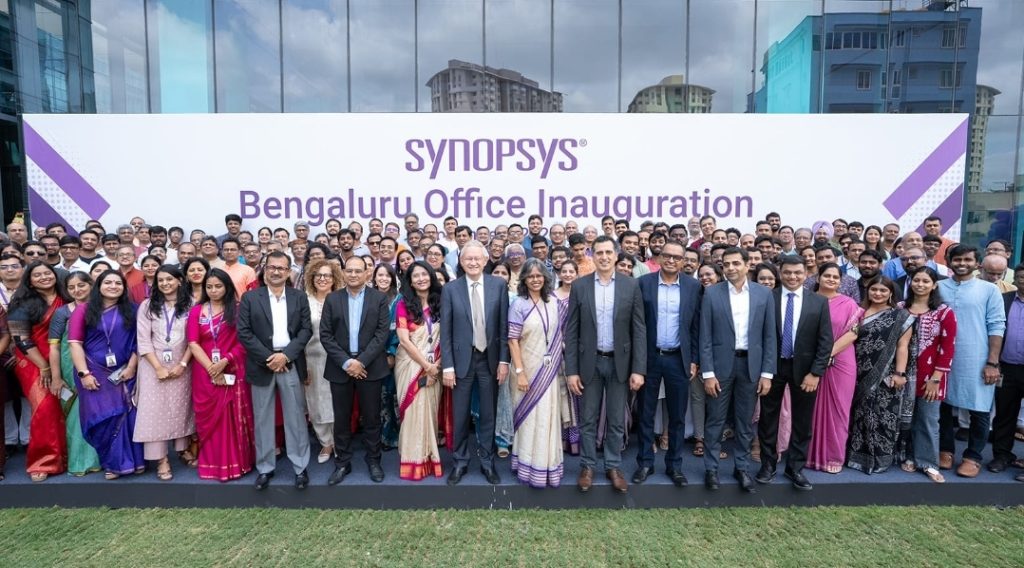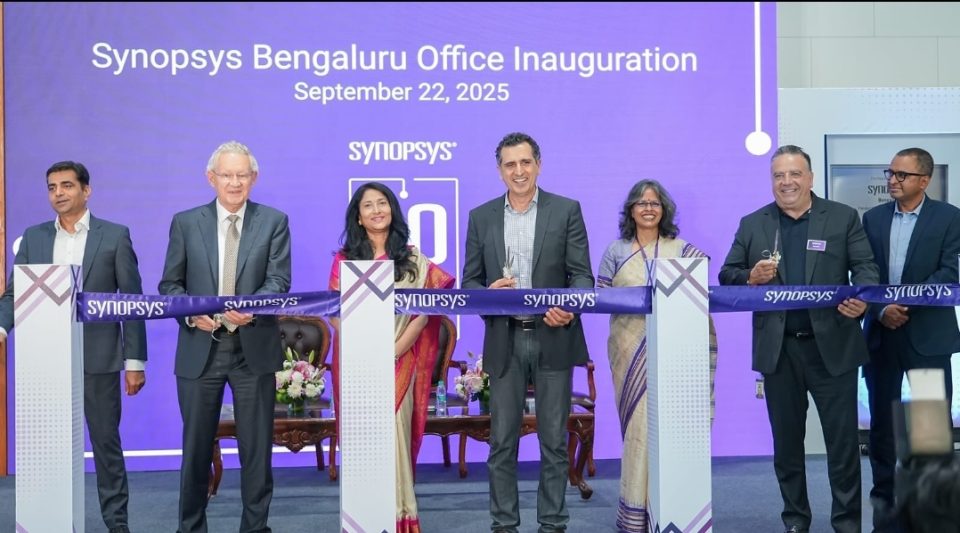Celebrating three decades of innovation feels remarkable when we consider where Synopsys started. Moreover, their journey demonstrates how customer-focused technology partnerships transform entire industries. Furthermore, today’s anniversary milestone reveals fascinating insights about customer experience in semiconductor design.
Building Customer Trust Through Sustained Innovation
The foundation of exceptional customer experience begins with understanding needs. Synopsys established this principle early in India, starting with their first R&D center in Bengaluru in 1995. Subsequently, they recognized that proximity to customers drives innovation velocity. Additionally, their expansion to seven cities across India demonstrates commitment to accessibility.
Customer success stories reveal measurable impact on business outcomes. Companies using Synopsys solutions achieve significant improvements in time-to-market metrics. For instance, organizations report 3x productivity increases and up to 25% lower power consumption using their AI-driven design tools. Consequently, these results translate directly into competitive advantages for semiconductor companies.
The recently completed Ansys acquisition amplifies customer value proposition significantly. This $35 billion strategic move creates comprehensive silicon-to-systems solutions. Therefore, customers can now optimize everything from chip design to thermal management within integrated workflows. Furthermore, the combined platform addresses the $31 billion total addressable market, expanding customer opportunities exponentially.
Transforming Customer Experience Through Cloud Innovation
Traditional EDA tool limitations create frustrating customer experiences. Previously, design teams faced license constraints that limited parallel workloads. Meanwhile, infrastructure bottlenecks delayed critical project milestones. However, Synopsys Cloud revolutionizes this paradigm completely.
Unlimited licensing transforms how customers approach design challenges. Teams can now scale from baseline infrastructure to thousands of cores instantly. Additionally, Cisco achieved two months earlier completion on characterization work using cloud-based approaches. Moreover, the pay-per-use model provides budget predictability while eliminating capacity constraints.
Customer testimonials highlight dramatic productivity improvements. HCLTech experienced significant operational excellence through cloud-based design platforms. Similarly, companies report 10-40% faster time-to-results without changing existing workflows. Therefore, customers maintain familiar processes while achieving superior outcomes.
AI-Driven Design Automation: Customer Success at Scale
Artificial intelligence fundamentally changes customer problem-solving capabilities. Synopsys DSO.ai represents the industry’s first autonomous design optimization platform. Furthermore, this breakthrough enables exploration of almost infinite design spaces that humans cannot navigate effectively. Consequently, customers discover optimization opportunities previously impossible to achieve.
Real-world customer outcomes demonstrate transformative business impact. Teams using AI-driven tools report 160+ successful chip designs and 100+ commercial tape-outs. Additionally, organizations achieve up to 20% better quality of results while reducing resource requirements. Moreover, these improvements accelerate innovation cycles substantially.
Customer feedback validates AI technology adoption trends. Microsoft leverages Synopsys AI Copilot for formal verification workflows, achieving 80% syntax accuracy and 70% functional accuracy. Meanwhile, design teams experience up to 10X faster response times for information retrieval tasks. Therefore, AI democratizes EDA expertise across experience levels.
Addressing India’s Semiconductor Ecosystem Challenges
India’s semiconductor ambitions require comprehensive customer support strategies. The government allocated ₹629 billion for semiconductor production incentives, demonstrating serious commitment. However, challenges include supply chain development, talent shortages, and infrastructure gaps. Consequently, customer success depends on addressing these systemic issues.
Synopsys partnerships enable customer ecosystem development. Their collaboration with 100+ organizations includes semiconductor design centers, AI startups, and manufacturing firms. Additionally, the SARA program supports 280+ academic institutions with design tools. Therefore, customers benefit from robust talent pipelines and innovation networks.
Educational initiatives create future customer success opportunities. Government programs equip 100+ colleges with EDA tools from Synopsys and competitors. Furthermore, the Chips to Startups initiative trains 85,000 people over five years. Meanwhile, India employs 220,000 semiconductor professionals with projected shortfalls requiring strategic intervention.
Customer Experience Innovation in Practice
Successful customer engagements reveal proven methodologies. Aaroh Labs achieved reduced power consumption, successful design closure, and timely project delivery using integrated Synopsys platforms. Similarly, Samsung Foundry accelerated multi-die system design with unified exploration-to-signoff workflows. Therefore, comprehensive solutions deliver superior customer outcomes.
First-time silicon success rates highlight industry-wide customer challenges. Recent data shows concerning trends with success rates dropping to just 14% in 2024 from 32% in 2020. However, organizations using advanced verification tools achieve significantly better results. Consequently, customer success requires proactive investment in proven technologies.
Cloud-based customer experiences eliminate traditional barriers. Companies access unlimited EDA licenses on-demand without infrastructure investments. Moreover, teams deploy complex simulations within minutes instead of weeks. Additionally, global accessibility enables distributed engineering teams to collaborate effectively.
The Customer Experience Transformation Ahead
India’s semiconductor manufacturing timeline creates customer opportunity windows. The first ‘Made in India’ chip launches by end of 2025, establishing domestic production capabilities. Furthermore, approved projects span high-volume fabs, advanced packaging, and OSAT facilities. Therefore, customers can leverage local manufacturing advantages soon.
Synopsys integration with Ansys delivers next-generation customer value. Combined solutions enable virtual design optimization from chips to chassis before production begins. Additionally, thermal and electrical challenges receive integrated analysis throughout design cycles. Consequently, customers achieve higher quality results with reduced risk.
Customer feedback drives continuous platform evolution. Design teams require faster verification, better coverage, and reduced manual effort. Meanwhile, AI agents coordinate multiple workflow aspects simultaneously. Therefore, future developments prioritize customer productivity and innovation acceleration.

Strategic Customer Partnership Success
Long-term customer relationships demonstrate sustained value creation. Synopsys maintained India operations for 30 years while continuously expanding capabilities. Furthermore, one-third of their global workforce operates from India, indicating deep customer commitment. Additionally, recent facility expansion provides 455,000 square feet for advanced R&D activities.
Customer success metrics validate strategic investment decisions. Organizations report 4x ROI improvements when implementing digital customer experience platforms. Meanwhile, evaluation times decrease from weeks to minutes using virtual testing environments. Therefore, customer-centric innovations deliver measurable business benefits.
The semiconductor customer experience evolution continues accelerating. Companies demand faster onboarding, better technical validation, and reduced evaluation costs. However, traditional approaches cannot meet these expectations effectively. Consequently, digital-first customer engagement becomes competitive necessity rather than optional enhancement.
Synopsys has transformed from a startup to a global leader by prioritizing customer success consistently. Their 30-year India journey exemplifies how sustained innovation partnerships create mutual value. As semiconductor complexity increases exponentially, customer experience excellence becomes the primary differentiator. Companies that master this balance will lead the next wave of technological advancement, while those that don’t risk obsolescence in an increasingly competitive landscape.

